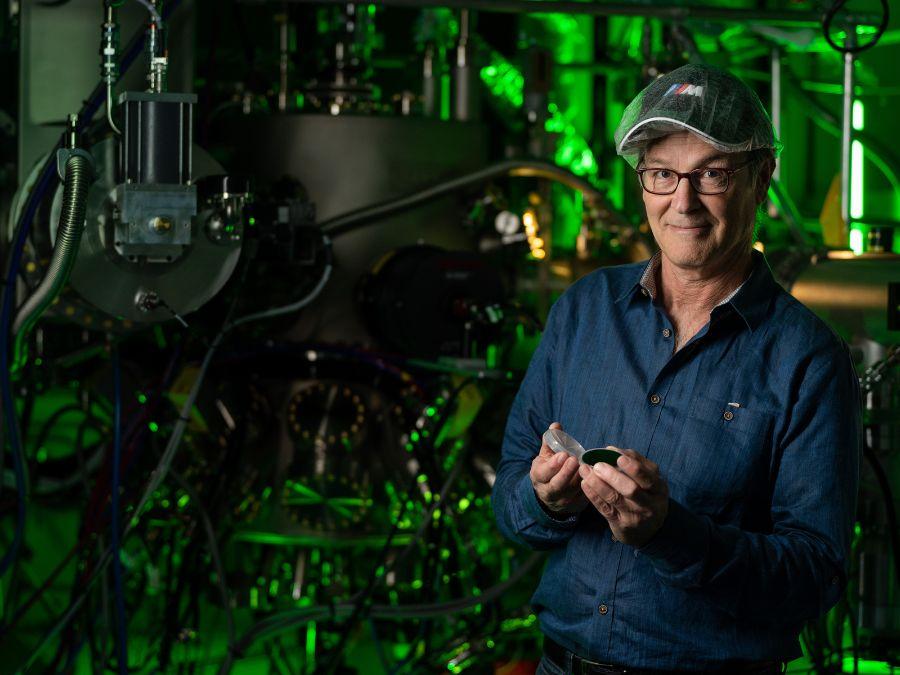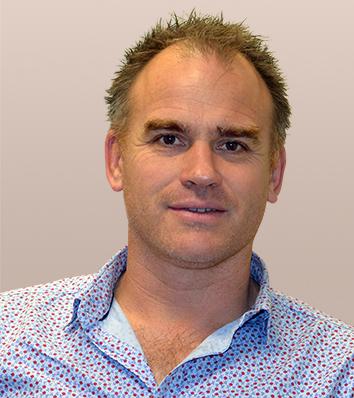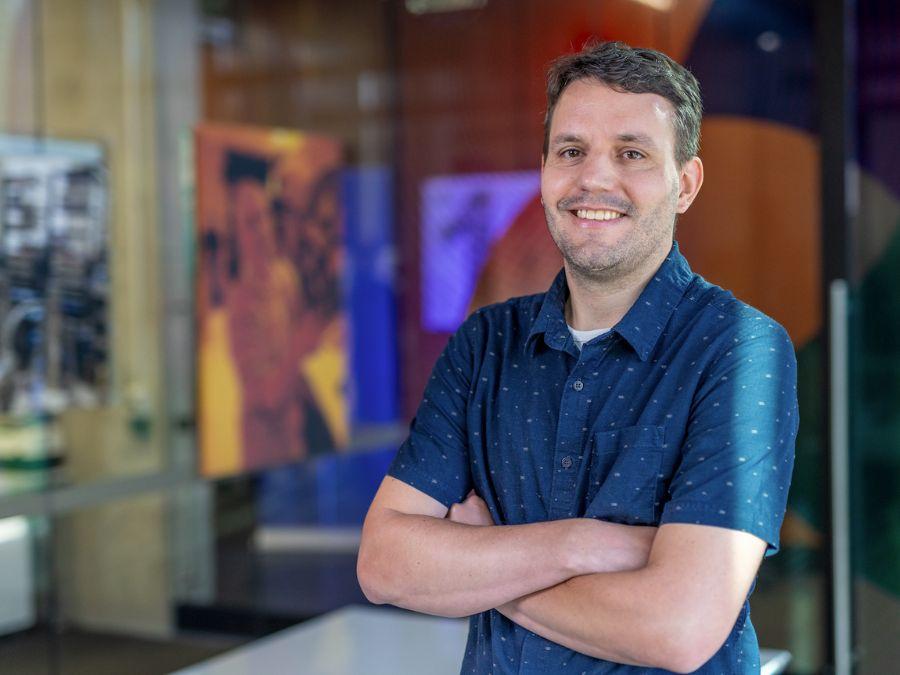People - Centre for Quantum Materials & Quantum Technologies
The world-class facilities at the University of Adelaide bring together experimental physicists, chemists, material scientists, experimentally driven theoretical scientists and researchers to create disruptive new quantum technologies.
It is a unique ecosystem to grow new semiconductor materials at the quantum scale and design new solid-state devices.Prof Glenn Solomon - CQMT Director
Our Staff
- Professor Glenn Solomon
- Dr Satya Undurti
- Dr Jamie McInnes
- Tim Wohlers-Reichel
- Dr Mikhail Patrashin
Our Students
- Declan Gossink
- Jacob Charvetto
- Josiah Hsi
- Nicole Yuen
- Samantha Summerford
-
Centre Research Leaders

PROF GLENN SOLOMON
Inaugural Hicks Chair of Quantum Materials, School of Physical Sciences
Professor Glenn Solomon is an esteemed scientist whose research has pushed the boundaries of our understanding of the interaction of light with semiconductor materials and device structures. His research combines quantum optics techniques and semiconductor crystal growth and processing to investigate semiconductor quantum optics.
Glenn is the inaugural Hicks Chair of Quantum Materials at the University of Adelaide. He is a Fellow of both the Optical Society (2018) “for pioneering the development of semiconductor quantum dot optical materials and device structures for solid-state quantum optics” and of the American Physical Society (2007) “recognizing extensive contributions to the study of quantum optics with quantum dots”. Before joining the University of Adelaide, he was a fellow at the Joint Quantum Institute at the University of Maryland in the USA, and a physicist at the US National Institute of Standards.
Glenn is one of few scientists in the world who has both fabricated nanostructures of quantum dots and performed quantum optics experiments on devices made from them. He is among the founders in using self-assembled, epitaxial crystal growth techniques to make nanostructures. With over 14,500 citations,
Glenn’s prolific body of work has not only had an extraordinary impact on Quantum Materials, but he has also generated 16 patents and founded CBL Technologies Inc., a start-up company that develops flexible hybrid GaN vapor-phase epitaxial growth techniques based in California.Glenn is leading the University of Adelaide’s world-class quantum materials program, bringing together physicists, engineers, material scientists, and key strategic industry partners, including Silanna and DSTG to identify and provide solutions to variety of near- and long-term problems where quantum materials and solid-state quantum devices can affect impactful change.
https://researchers.adelaide.edu.au/profile/glenn.solomon

PROF NELSON TANSU
Head of School, Electrical and Electronic Engineering, Professor of Quantum Electronics
Professor Nelson Tansu has made great contributions to the advancements in materials, devices, computational sciences, and integrated technologies based on ultrawide-bandgap semiconductors for sustainability, biomedical sciences, power electronics, and quantum materials.
Nelson is the new Head of School of Electrical and Electronic Engineering, and Professor of Quantum Electronics. Prior to joining the University of Adelaide,
Nelson was the Director of the Center for Photonics and Nanoelectronics and the Daniel E. ‘39 and Patricia M. Smith Endowed Chair Professor in the Department of Electrical and Computer Engineering at Lehigh University, Pennsylvania, USA. He is a Fellow of the US National Academy of Inventors (NAI Fellow; elected in 2016), IEEE Fellow (elevated in 2021), and a Clarivate Analytics Highly Cited Researcher (2018).Nelson’s works on quantum materials, quantum electronics, and photonics have resulted in new scientific concepts and key patents, which are implemented into today’s commercial products. These products include solid-state lighting, display, power electronics, semiconductor, and biomedical industries in the US, Europe, and Asia. He has raised over US$13M for research and authored more than 160 refereed journals, 325 conference publications and 18 US patents. His work has been cited more than 8,950 times with an h-index of 52.
Nelson has recently been focusing on connecting machine learning and quantum materials for photonics and nanoelectronics devices – an exciting and rapidly developing area. His research works have impacts on advancing sustainable and renewable engineering, biomedical engineering, advanced sensors, and new technologies for security, space, and resilient infrastructures.
https://researchers.adelaide.edu.au/profile/nelson.tansu

PROF ANDRE LUITEN
Chair of Experimental Physics and Director, Institute for Photonics and Advanced Sensing
Prof Andre Luiten FAIP GAICD FTSE is internationally recognised for developing a sequence of precision measuring instruments that show the highest performance that the world has ever seen. These devices are bringing a step-change in the capability of several key industry sectors, including Defence and Space.Andre is the Director of the Institute for Photonics and Advanced Sensing (IPAS) and Chair of Experimental Physics at the University of Adelaide. He is a Fellow of the Australian Institute of Physics and of the Australian Academy of Technology and Engineering.
Andre has published 6 book chapters and authored 131 journal papers with over 5,600 citations and has raised over $34M for research. The excellence of his research has been recognised by a number of awards and fellowships, including the Barry Inglis Medal from the National Measurement Institute, which acknowledges outstanding achievement in measurement research and excellence in practical measurements, the Australian Institute of Physics’ Alan Walsh Medal for Service to Industry and the prestigious 2018 Eureka Prize for Outstanding Science in Safeguarding Australia.
He is also the co-founder and managing Director of QuantX Labs, a successful startup commercialising the world’s most precise clock (Cryoclock) and developing the highest precision timing and sensor products.
Andre’s scientific expertise in Quantum Technologies and overall strategic leadership will contribute greatly to the success of establishing South Australia as a hub for Quantum Materials innovation.
https://researchers.adelaide.edu.au/profile/andre.luiten

PROF HEIKE EBENDORFF-HEIDEPRIEM
Head of Photonics Materials and Deputy Director, Institute for Photonics and Advanced Sensing
Prof Heike Ebendorff-Heidepriem’s research has pushed the limits of glass science and technology, disrupting existing knowledge and creating new paradigms and tools for designing and fabricating novel photonic glasses and structures.
Heike is the Deputy Director of the Institute for Photonics and Advanced Sensing (IPAS) and Director of the Optofab Adelaide Hub at the Australian National Fabrication Facility (ANFF).She is also Senior Investigator at the ARC Centre of Excellence for Nanoscale BioPhotonics (CNBP). In 2017, she became a Fellow of the Optical Society of America, an honour awarded by peers for having “made significant contributions to the advancement of Optics”.
Heike has applied her knowledge and skill and has held prestigious fellowships in several countries, including Germany, the UK and Australia. She has received numerous awards highlighting her research excellence in innovation and technology. Heike has published over 370 refereed journal papers and conference proceedings, including 5 review papers and 9 postdeadline papers, and raised over $36M in research funding.
Her experience will contribute greatly to the Quantum Materials program through her continued research and development of the next generation of semiconductor laser diodes and crystal-glass hybrid fibres for fibre laser and quantum sensing applications, vand the development of extremely low-loss fluoride fibre for long-haul transmission of flying qubits for the quantum internet.
https://researchers.adelaide.edu.au/profile/heike.ebendorff

PROF PETER VEITCH
Head of School, Physical Sciences and Prime Minister’s Prize for Science 2020, joint recipient
Professor Peter Veitch’s extensive body of work focuses on the development of advanced lasers and sensors, including high-energy pulsed mid-infrared lasers that are of critical interest to Defence for Directed Energy applications.
Professor Veitch is an esteemed physicist, Head of School of Physical Sciences, and the Leader of the University of Adelaide node of the ARC Centre of Excellence for Gravitational Wave Discovery (OzGrav).
He was elected a Fellow of the Optical Society of America “for development of techniques essential to the successful high optical-power operation of gravitational wave detectors and contributions to Advanced LIGO”, and is also a Fellow of the Australian Institute of Physics.
Peter is one of four scientists who together were awarded the country’s most prestigious award in scientific research, the Prime Minister’s Prize for Science in 2020. The PM’s Prize was awarded for their role in the detection of gravitational waves, a scientific breakthrough recognised by the 2017 Nobel Prize in Physics. Peter has played a key role in the technological leap that has enabled the construction of the Advanced LIGO gravitational-wave detector, led by the global LIGO Scientific Collaboration.
The field of Directed Energy will benefit highly from the collaborative development of new quantum materials and devices, with research at the University of Adelaide spanning the divide between fundamental materials research and the applied devices continuum.
https://researchers.adelaide.edu.au/profile/peter.veitch

PROF DAVID LEWIS
Head of School, Chemical Engineering and Advanced Materials
Professor David Lewis’ academic focus is on leadership, education and commercialisation of research. He is experienced in developing business opportunities for project executions and brings this knowledge with him to the team.
David currently serves as the Head of the School of Chemical Engineering and Advanced Materials at the University of Adelaide, where is he building capability in the field of materials and bioprocess engineering. As an experienced Chartered Chemical Engineer and Fellow of the Institute of Chemical Engineers, David’s industry and academic careers have provided him the opportunity to work in the petroleum, mining, automation, hospitality, and defence industries on process design and optimisation.
From 2012 to 2016 David led a technology start-up company developing new commercial opportunities focused on production of sustainable oils from hydrothermal liquefaction using renewable feedstocks such as biomass and organic wastes. With both industry and academic careers, David has been fortunate to have worked on process development from conception to commercialisation.
David leads a team of chemical, bioprocess and materials engineers undertaking transdisciplinary R&D focussed on advanced materials and next generation bioprocesses. In particular the team is leveraging the unique quantum, electronic, and excitonic properties of crystalline solids for biosensing and bio-imaging; and developing innovative solutions for the production of semiconductors, with a focus on optimising atomic layer etching to provide cost-effective and sustainable advanced manufacturing opportunities.
https://researchers.adelaide.edu.au/profile/david.lewis

DR GIUSEPPE C. TETTAMANZI
Head of QuaNTeG, School of Physical Sciences
Dr Giuseppe C. Tettamanzi is an emerging leader in the field of Solid-State Systems whose work explores theoretical prediction on the behaviours of nano-devices, their fabrication, and their low-temperature characterisation via state-of-the-art ultra-low noise electrical measurements techniques. He has developed several novel concept devices; including the smallest existing DC SQUID design and the first implementation of a Single Atom-based Single Electron Source (funded under a prestigious ARC DECRA fellowship), studying highly complex quantum phenomena in these nano-devices.
Giuseppe is head of the QuaNTeG group at the University of Adelaide and part of the winning team of the prestigious 2018 Eureka DSTG Prize for Outstanding Science in Safeguarding Australia.
Giuseppe has secured over $4.5M to drive his research program and published 45 manuscripts, 90% in the top journals of his field. The strength of Giuseppe’s research is also demonstrated by the numerous invited oral presentations at leading international conferences, including the International Conference on Advanced Materials and Nanotechnology (AMN) held every two years in New Zealand, the CMOS Emerging Technologies Conference held every year in Whistler, Canada, and funded visiting positions at the INRS–EMT, Univ. du Québec, Varennes, Canada and the NEST Laboratory of the “Scuola Normale Superiore” of Pisa.
As coordinator of the Engineering of Semiconductor Materials and Quantum Materials courses within the University of Adelaide, Giuseppe is heavily involved in student development. He is a Chief Investigator on large funding bids that have allowed the installation of key sovereign Quantum capabilities at the University of Adelaide, including a new $20M+ microfab facility.
https://researchers.adelaide.edu.au/profile/giuseppe.tettamanzi

DR PETAR ATANACKOVIC
Silanna Chief Scientist, Adjunct Fellow
Dr Petar Atanackovic developed the key intellectual property for the manufacture of Quantum Engineered deep ultraviolet diodes.
Petar is the Chief Scientist of SILANNA Semiconductor Pty Ltd. He joined Silanna in 2009 as one of the founders of the commercial 150 mm III-V production
facility pioneering commercial scale gallium nitride molecular beam epitaxy (MBE).He holds over 40 granted US patents in semiconductors and devices. In 2001-2008 he founded a technology start-up named Translucent Inc. attracting investment in excess of US$15M. The technology was awarded a DARPA technology investment grant.
Prior to founding Translucent, Petar was an invited visiting scholar to Stanford University (1998-2001) and Senior Research Scientist at the Defence Science and Technology Organisation, Edinburgh, South Australia, where he pioneered optical analog-to-digital conversion technologies.
Petar is leading the Silanna/University of Adelaide collaboration, building an environment for knowledge creation and training in Quantum Materials to rapidly scale and meet the skilled workforce needs of South Australia’s high-tech sector.

ALEXANDER HEMMING
DSTG Visiting Research Fellow
Alex Hemming leads research into a range of laser technologies primarily based on fibre sources for Defence applications.
Alex is a Research Scientist with the Defence Science and Technology Group (DSTG) in Adelaide, South Australia.
He has authored over 80 journal and conference papers including 14 invited conference papers primarily on the power scaling of Short Wavelength Infrared (SWIR) fibre sources.
Alex is currently leading the establishment of the MBE based semiconductor laser diode capability for Defence applications in collaboration with the University of Adelaide.

Dr Andy Boes, Senior Lecturer
School of Electrical and Mechanical Engineering, Faculty of Sciences, Engineering and Technology
Dr Andy (Andreas) Boes is a Senior Lecturer and Associate Head for Research at the School of Electrical and Mechanical Engineering and works at the Institute for Photonics and Advanced Sensing (IPAS) at the University of Adelaide. Andy obtained his PhD in Engineering in 2016 for which he was awarded the Prize for Research Excellence – HDR (Technology) from RMIT University. He was a Research Fellow at RMIT University from 2016 to 2022 and spent a sabbatical year at the University of California, Santa Barbara (UCSB), visiting Prof. John Bowers, one of the world leaders in photonic integrated circuits, in 2017/18. In total Andy attracted more than $4.7M in research funding and been award the RMIT Award for Research Excellence – Early Career Researcher – Technology award, the Victoria Fellowship and the Geoff Opat Early Career Researcher Prize in 2020. He was also awarded an ARC DECRA fellowship in 2023.
Andy has comprehensive understanding and experience in the simulation, design, fabrication and characterisation of photonic integrated circuit chips and using these chips for applications in communication, microwave photonics, defence, quantum optics and sensing. Andy focuses on the micro- and nano fabrication of photonic integrated circuit chips, which use waveguide materials with attractive optical properties such as lithium niobate, silicon, silicon nitride and GaAs. He uses the materials properties of the waveguides for demonstrating highly efficient nonlinear optical and electro optical interactions, which enables photonic chips with compact footprint that can manipulate light on demand.
Collaborations
The centre collaborates with scientists from key institutes to build upon the area of photonics and its applications in other multidisciplinary fields.
- Prof Nelson Tansu - Head of School, Electrical and Electronic Engineering
- Institute for Photonics and Advanced Sensing
- Prof Andre Luiten - Chair of Experimental Physics
- Prof Heike Ebendorff-Heidepriem - Head of Photonics Materials
- A/Prof Abel Santos - Materials Engineering
- Lecture Andy Boes - Photonic integrated circuits
- Prof David Lewis - Head, The School of Chemical Engineering
- A/Prof Yan Jiao - Deputy Head - School of Chemical Engineering
- Lecture Giuseppe Tettamanzi - School of Chemical Engineering
- Petar Atanackovic - Silana CEO
- Silanna Group - Semiconductor Design and Manufacturing Company
- Defence Science and Technology Group - Australian Government Department of Defence
